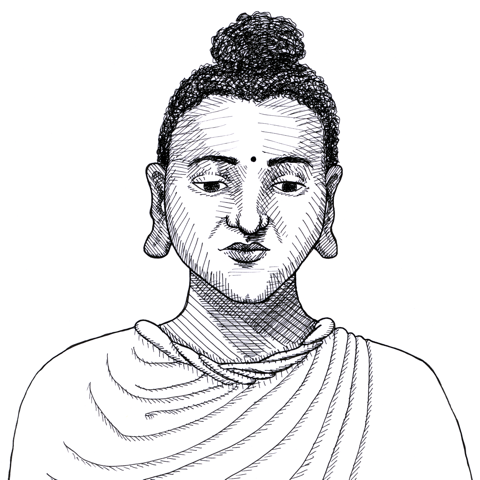
Buddha and his “Ten Commandments”
Found in: The Gospel of Buddha
This passage is an excerpt from The Gospel of Buddha, a 1915 work by Paul Carus. The work as a whole, and this passage in particular, is a reflection of Carus’ goal of making Buddhism more familiar and accessible, and thus sympathetic, to a Western audience.
Religion & Toleration
I exhort you to avoid the ten evils:
- Kill not, but have regard for life. II. Steal not, neither do ye rob; but help everybody to be master of the fruits of his labor. III. Abstain from impurity, and lead a life of chastity. IV. Lie not, but be truthful. Speak the truth with discretion, fearlessly and in a loving heart.
- Invent not evil reports, neither do ye repeat them. Carp not, but look for the good sides of your fellow-beings, so that ye may with sincerity defend them against their enemies. VI. Swear not, but speak decently and with dignity. VII. Waste not the time with gossip, but speak to the purpose or keep silence. VIII. Covet not, nor envy, but rejoice at the fortunes of other people. IX. Cleanse your heart of malice and cherish no hatred, not even against your enemies; but embrace all living beings with kindness.
- Free your mind of ignorance and be anxious to learn the truth, especially in the one thing that is needful, lest you fall a prey either to scepticism or to errors. Scepticism will make you indifferent and errors will lead you astray, so that you shall not find the noble path that leads to life eternal. (FROM: XLVI: AVOIDING THE TEN EVILS) - Buddha